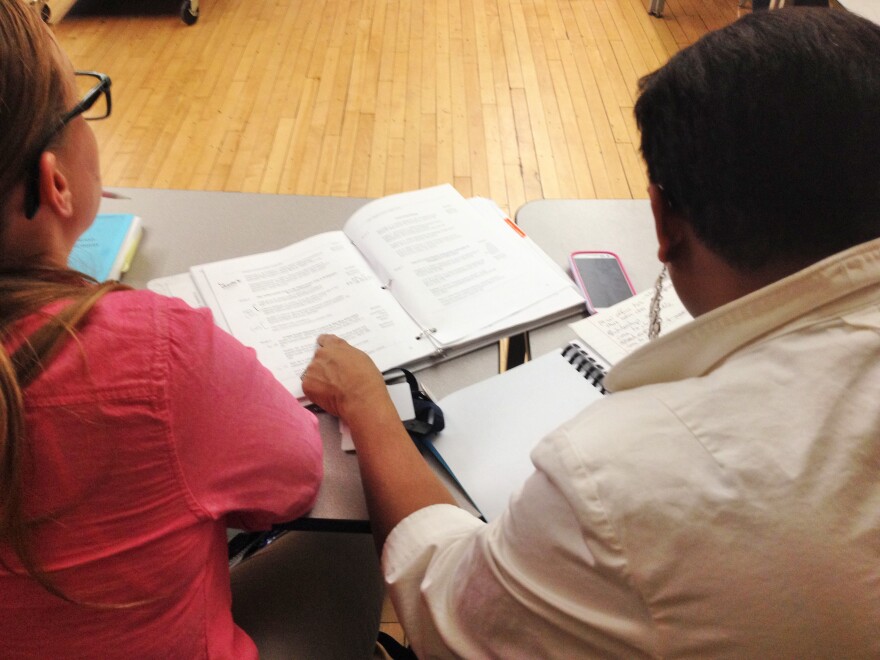Chamonique Griffith stands in front of her second-graders on a Thursday morning, about to try something that, for her, is new.
"How many of you know that I go to class at night?" she asks.
Her second graders all quietly raise their hands.
"So, last night, I got to do a really cool activity with my teacher," Griffith continues, "and so I wanted to try the activity with you."
Griffith is part of the first cohort of teachers in a new college of education at Davenport University in Grand Rapids. This college is focused entirely on preparing teachers for urban classrooms. The students enrolled in the master's level program, for now, are all currently teaching at Grand Rapids Public Schools.
Griffith teaches at the Gerald R. Ford Academic Center. Most of the kids at this school are black or Latino. More than 90% come from families considered “economically disadvantaged” according to state data.
Griffith hands out a sheet for each student. She tells them to write down one thing they like about this class, and one thing they would change. At the end, the kids take turns reading each other’s papers out loud for her to hear.
Many of them say they like math. But some say math is the thing they don't like. For others, it's reading. Quite a few of them say the thing they don't like is the desk arrangement in the classroom.
"Some of the things that I heard that you didn’t like, we can work on," Griffith says when they're done. "I'll work on creating a plan so that we can change our table spaces around."
Afterward, she asks the second graders to say how the exercise made them feel.
“Good,” a bunch of them say. Or: “Awesome”
One girl says it made her feel triumphant.
"I'm not wedded to any particular style of college or university. I am wedded to helping poor people, people of color and other disenfranchised folk."
This exercise is based on a teaching concept known as cogenerativedialogue. Griffith learned about it just a few nights before, in an assignment at her school.
The founding dean of Davenport's new College of Urban Education is Andre Perry. He moved to Grand Rapids from New Orleans, where he was involved in rebuilding the city’s education system after Hurricane Katrina. He came to Davenport, because he says this is somewhere he could help build something new.
"I’m not wedded to any particular style of college or university," Perry says. "I am wedded to helping poor people, people of color and other disenfranchised folk."
And so the students in this new master’s level program – all of whom are already teachers in Grand Rapids – they learn about things like inequity and implicit bias. They learn about how culture impacts the classroom, how students of color can feel silenced or judged for their cultural background, how that can lead to disillusionment and disenfranchisement.
That, ultimately, is what Griffith's exercise with her second graders is about: Making sure her students feel like their voices are being heard.
Perry says other schools of education touch on the specific issues affecting urban classrooms, but that’s not their focus.
"We’re dedicated to an urban community," he says, "because a lot of people, quite frankly, aren’t."
But the numbers are growing. Research on the particular needs of urban schools has led to more teaching programs aimed specifically at training urban teachers. Here in Michigan, MSU now offers an Urban Education Graduate Certificate.
Evaluations of these kinds of programs show they can be more effective at preparing teachers, and graduates of urban education programs are more likely to stay long-term as urban teachers.
The Davenport students so far are all already teachers. That means it doesn’t take long for the effects of the program to show up in schools. For Chamonique Griffith’s students, it only took a few days.




